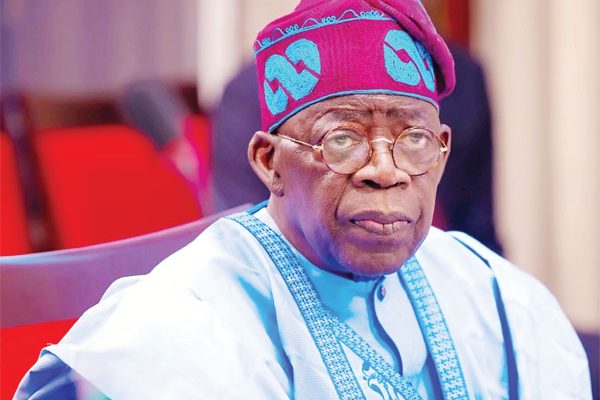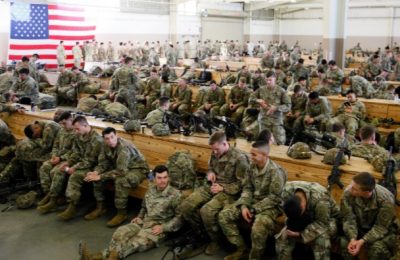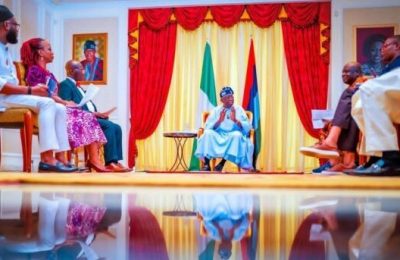
President Bola Tinubu on Thursday reaffirmed his commitment as the Chairman of the Authority of ECOWAS Heads of State and Government to advancing judicial reforms with determined support, emphasising that integrity and accountable judicial systems will strengthen democracy across West Africa.
He made the declaration at a meeting with a delegation from the ECOWAS Judicial Council led by Justice Olukayode Ariwoola, Chief Justice of Nigeria and Chairman of the Council, at the Presidential Villa in Abuja.

He said: ”We are committed to transformative democracy because we believe the judiciary can protect democracy.
”We are ready to support you as learned minds who have the requisite experience and institutional memory to comprehensively reform our institutions.
“I assure you as Chairman of ECOWAS Authority of Heads of State and Government that the judiciary is one of the pillars to protect our democracy and it is only in this regard that we can make a difference on the continent.”
Tinubu congratulated judges from member-states who participated in the two-day council meeting in Abuja, applauding the successful conclusion of their deliberations.
He assured them that their recommendations would receive utmost consideration by the Heads of State and Government of ECOWAS.
“We will work with you to ensure that your expertise is employed to promote justice in our democratic experiences on the continent and in the region. You are truly the last hope of the common man across our sub-region,” President Tinubu added.
Speaking on behalf of the ECOWAS Judicial Council, Justice Ariwoola emphasized the Council’s commitment to facilitating the effective functioning of the ECOWAS judicial system.
He said the Council, at the end of its meeting in Abuja, agreed to establish two sub-committees to address pertinent judiciary-related issues in the region.
He also said the first sub-committee will look into the rules of procedure of the Council itself, which were found to be inadequate.
The Chief Justice of Nigeria explained that members from Benin Republic, Guinea-Bissau, Ghana, The Gambia, and Sierra Leone have been tasked to work on the rules of procedure on the Judicial Council.
Justice Ariwoola further explained that the Council of Ministers had tasked the Judicial Council, in collaboration with the Commission and the Community Court, to address the enforcement of judgments issued by the Community Court.
“The court under the guidance of its President has made presentations which have adequately informed the Judicial Council on the issues and challenges encountered in the enforcement of the judgments. The Judicial Council was of the opinion that a second committee was required to tackle the issue because of the complexity of the matter.
”The members of this second sub-committee are Senegal, Sierra Leone, Liberia, Cabo Verde, and Togo,” he added.
Justice Ariwoola stated that both sub-committees would present their findings to the Judicial Council, which would subsequently make recommendations to the Authority of Heads of State and Government.
In a chat with correspondents after the villa meeting, Justice Ariwoola disclosed that they discussed the enforcement of judgments handed down by the ECOWAS Court.
Recall that while speaking at the opening session of the statutory meeting of the ECOWAS judicial council in Abuja on Tuesday, Attorney-General of the Federation (AGF), Lateef Fagbemi, had admonished the court against delivering unenforceable judgments.
“It is important for the court to pay attention to the peculiarities of member States and refrain from issuing orders and judgments that are practically incapable of enforcement,” the chief law officer had said.
The CJN affirmed that enforcement of the court judgment was part of the issues he discussed with the president.
He said: “Attorney-General of the Federal Republic of Nigeria, Prince Lateef Fagbemi (SAN), gave that as part of his pitch at the opening session on Tuesday and that is part of my remarks to Mr. President, also this morning that the issue on the enforcement of the judgments of the community court is going to be looked into.
“We’ve set up two committees; one to look into the rules and the other to look into the position or the status of the enforcement of judgments of the community court and as I told Mr. President, by the time the Council concludes its meeting, the recommendations will show that we have worked so hard to support the (ECOWAS) Commission.”
The CJN noted that the meeting with the president went well, adding that the council will submit its recommendations to the commission at the conclusion of its meeting.
He added: “The meeting with Mr. President went on beautifully. This is a courtesy visit on Mr. President by the ECOWAS Judicial Council and as the Chief Justice of Nigeria, I was elected the Chairman of the ECOWAS Judicial Council.
“The Council has been having its meeting at the Council Hall of the National Judicial Council since Tuesday and that’s why we planned to visit Mr President, Asiwaju Bola Ahmed Tinubu, GCFR, and we were granted the honour to make this visit to appraise His Excellency about what transpired at our meeting.
“We planned to submit our recommendations to the authority when we conclude our meeting. It has been wonderful.”







